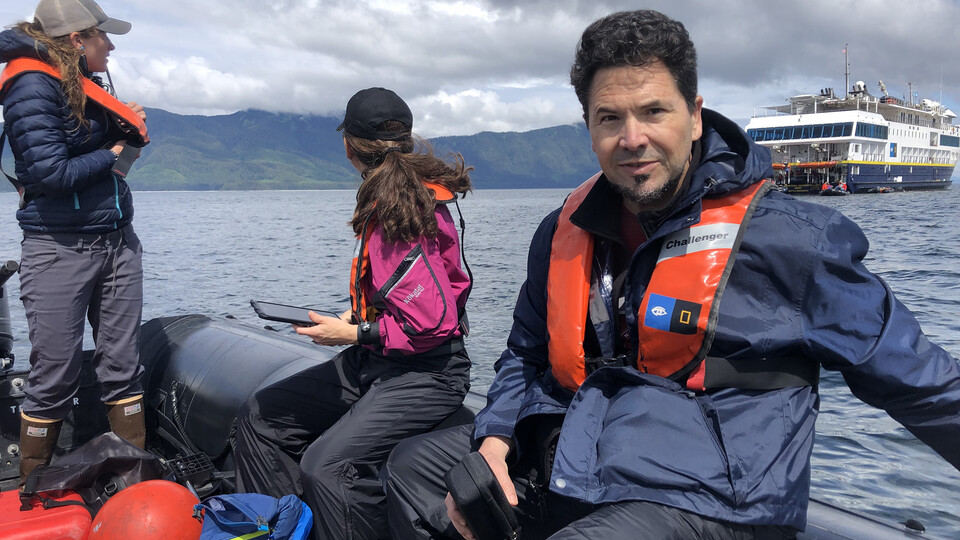Johnny Carson Center for Emerging Media Arts
Fine and Performing Arts, July 8, 2024
Novy aids development of next-generation ocean sensor system
Nebraska’s Dan Novy is part of a national team developing the next-generation deep ocean sensor and camera system for the Ocean Discovery League.
The project is part of a $1.2 million ocean technology transition grant from the National Oceanic and Atmospheric Association and the Integrated Ocean Observing system. The team includes UNL, Woods Hole Oceanographic Institution and the Pacific Islands Ocean Observing System. The award is one of the largest single investments in easy-to-use, low-cost technology targeting the deep sea.
Novy, assistant professor of emerging media arts in the University of Nebraska–Lincoln’s Hixson-Lied College of Fine and Performing Arts, has supervised the development of previous Ocean Discovery League systems. He will serve as a technical adviser on the new project, helping develop innovative technologies and experiences, both technical and creative, to enhance the system’s usability and impact.
“I will be collaborating with research partners and coordinate educational and creative outreach efforts, including workshops, interactive installations, and training sessions, to empower communities to utilize the new technology effectively and capture the public’s imagination,” Novy said.
The grant was awarded to Katy Croff Bell, an oceanographer and National Geographic deep-sea explorer who leads the Ocean Discovery League.
The Integrated Ocean Observing system’s Ocean Technology Transition program sponsors the transition of emerging marine observing technologies to operational mode. The program’s goal is to improve ocean observing capabilities, which are critical for helping understand ocean, coastal and marine environments.
As part of this award, the league will develop the deep-diving, low-cost Deep Ocean Research and Imaging System — or DORIS — to lower the financial and technical barriers to deep-sea exploration and research. DORIS builds on previous modular systems developed by the Ocean Discovery League and is a novel, customizable tool consisting of interchangeable sensing and operational modules that can be configured to meet the mission of individual projects.
“We have seen a minuscule fraction of the deep seafloor,” Bell said. “Only through scalable, innovative solutions like DORIS and expanding the community of global ocean explorers will we be able to make significant progress in characterizing this barely explored ecosystem.”
The primary goal of this system is to reduce the reliance on technical expertise for operation and deployment. DORIS will aim to achieve an operational depth of 6,000 meters and include a suite of modules, including sensing modules (e.g., O2/CO2, CTD sensors) and operational modules (e.g., lighting). In 2020, Wayfinder — a prototype developed by the league’s predecessor, the Open Ocean Initiative at the MIT Media Lab — provided critical lessons in developing easy-to-use modular oceanographic systems.
The Pacific Islands Ocean Observing System supports ocean users and stakeholders throughout the Pacific Islands by providing accurate and reliable coastal and ocean information, tools and services that are easy to access and use. The grant will leverage their network of communities, regional liaisons and data visualization platform to bolster community capacity. Further, it will support training, user support and workshops to help address knowledge gaps concerning ocean technology.
“The collaboration with Ocean Discovery League on this grant cuts to the heart of the PacIOOS mission, aiming to empower ocean users in the region through more accessible data and technology,” said Jordan Watson, deputy director of PacIOOS. “This project seeks to provide new and accessible technology while also building capacity for communities without traditional participation in deep ocean science.”
Additional partners include Anna Michel, associate scientist at WHOI and chief scientist of the National Deep Submergence Facility, whose team will adapt their CO2/O2 sensor for use as a module for DORIS.






